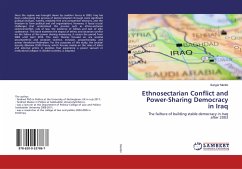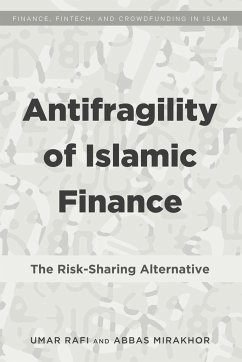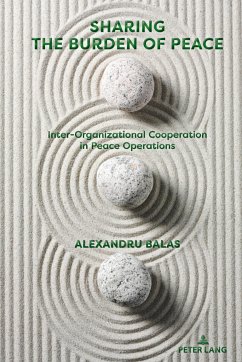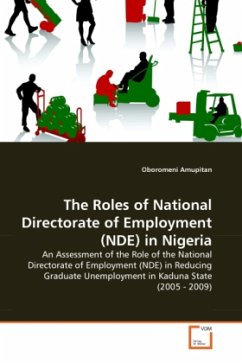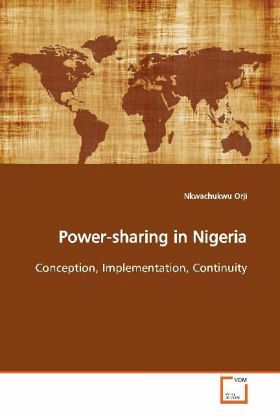
Power-sharing in Nigeria
Conception, Implementation, Continuity
Versandkostenfrei!
Versandfertig in 6-10 Tagen
45,99 €
inkl. MwSt.

PAYBACK Punkte
23 °P sammeln!
Nigeria is well-known for bloody conflicts andinstitutional instability resulting from the intensepolitical competition among the country s severalethnic and regional groups. Many analysts see thepolitical history of post-colonial Nigeria as ahistory of political instability. It seems justifiedto characterize Nigeria as unstable considering theseemingly clear evidence of political discontinuitiesin the country. However, there is a deep structure ofpolitical continuity that exists in the country, onewhich challenges the discontinuity perspective. Thisstructural continuity manifests in the pract...
Nigeria is well-known for bloody conflicts and
institutional instability resulting from the intense
political competition among the country s several
ethnic and regional groups. Many analysts see the
political history of post-colonial Nigeria as a
history of political instability. It seems justified
to characterize Nigeria as unstable considering the
seemingly clear evidence of political discontinuities
in the country. However, there is a deep structure of
political continuity that exists in the country, one
which challenges the discontinuity perspective. This
structural continuity manifests in the practice of
power-sharing. This book proposes an alternative
perspective to Nigerian politics, presenting
power-sharing as a fundamental and continuous aspect
of Nigerian political life. The analysis sheds some
light on the relationship between institutions and
processes in Nigerian politics, and should be
especially useful to students of Nigerian politics,
political theory, and comparative politics.
institutional instability resulting from the intense
political competition among the country s several
ethnic and regional groups. Many analysts see the
political history of post-colonial Nigeria as a
history of political instability. It seems justified
to characterize Nigeria as unstable considering the
seemingly clear evidence of political discontinuities
in the country. However, there is a deep structure of
political continuity that exists in the country, one
which challenges the discontinuity perspective. This
structural continuity manifests in the practice of
power-sharing. This book proposes an alternative
perspective to Nigerian politics, presenting
power-sharing as a fundamental and continuous aspect
of Nigerian political life. The analysis sheds some
light on the relationship between institutions and
processes in Nigerian politics, and should be
especially useful to students of Nigerian politics,
political theory, and comparative politics.





